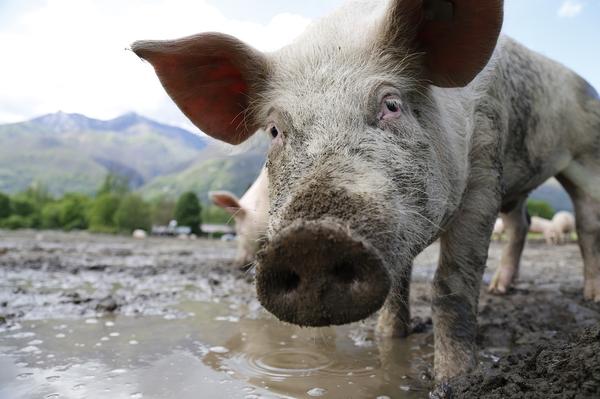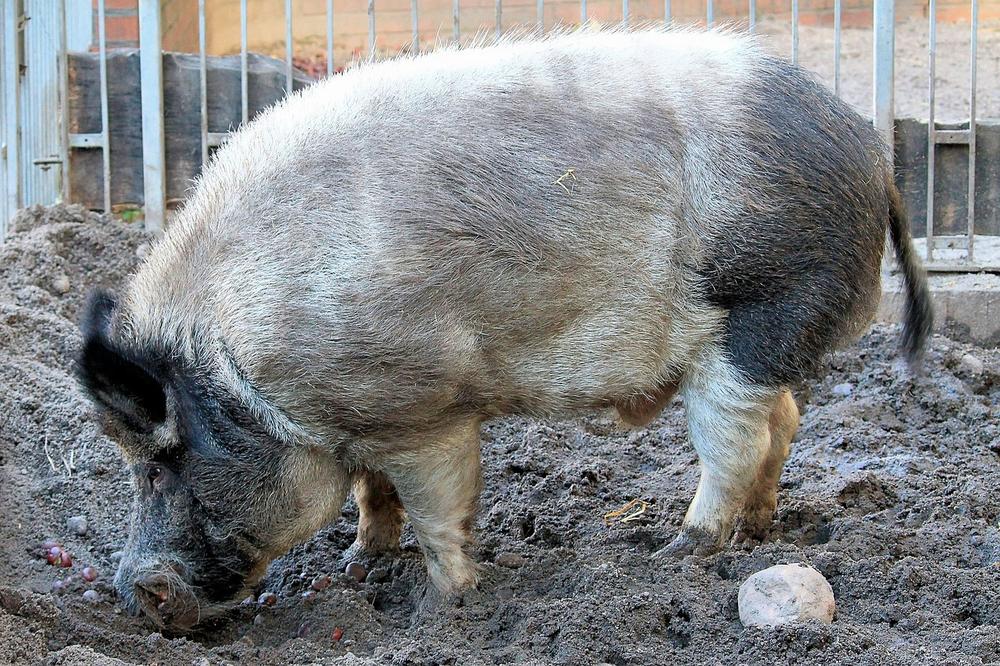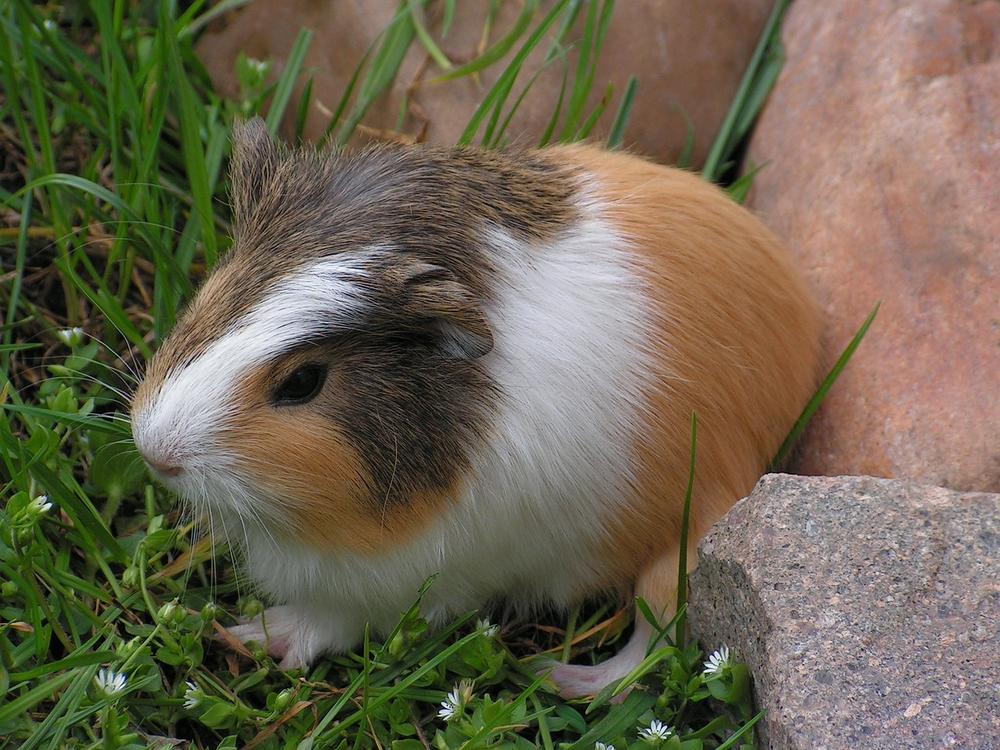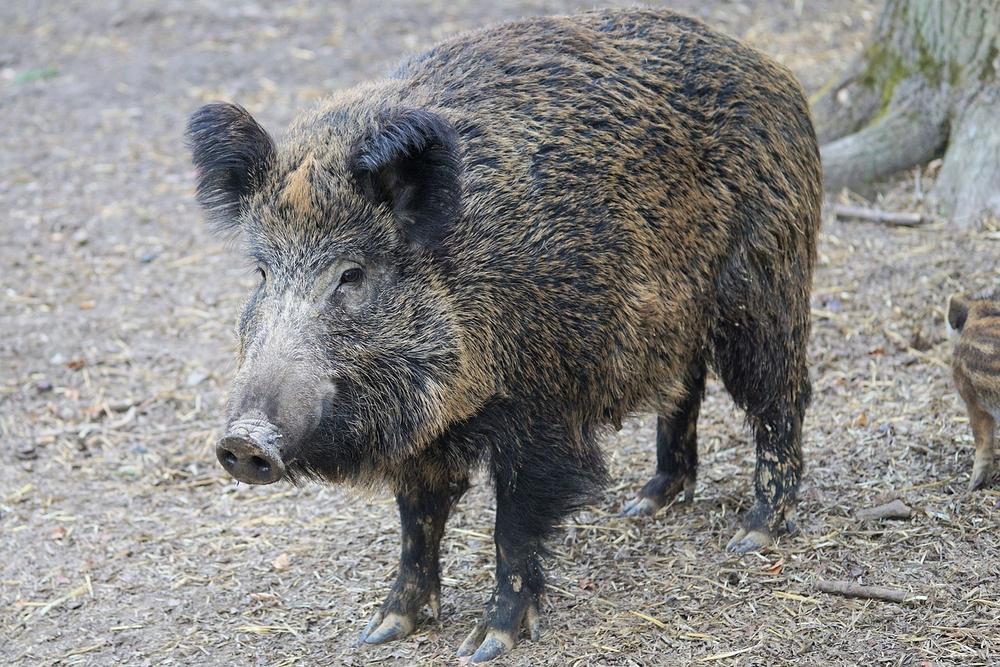Pig Depression (Causes, Symptoms & Solutions)

Feeling down about depressed pigs?
Can't shake off the sadness? 😔
Wondering if something can be done?
Well, take a minute, because I've got something to say:
Let's explore the causes and solutions, shall we?
Factors Influencing Pig Resilience, Housing, and Emotional Well-Being
Providing pigs with an enriched environment is key to their emotional well-being and resilience.

But there are several factors that influence pig resilience, housing, and emotional well-being:
- Stimulating materials, such as straw or toys, help improve pig emotional well-being and reduce boredom.
- Depression is a growing concern in pigs, just like it is in humans.
- Tail docking, a common practice to address piglet biting, has negative consequences.
- Farmers suffer substantial losses due to these challenges, leading to a decline in meat quality.
- Pigs exhibit stress-induced sickness behaviors due to the action of proinflammatory cytokines in their brains.
- Research suggests that proinflammatory processes may also play a role in human depression.
- Passive behaviors increase in guinea pig pups when injected with lipopolysaccharide, indicating the influence of proinflammatory processes.
- Researchers commonly use the likelihood ratio test to compare adjustments in different models during studies.
Farmers can improve pig resilience, housing conditions, and overall emotional well-being by comprehending these factors and implementing strategies for environmental enrichment. 😊
Effects of Hormonal Imbalances on Pig Mental State
Certain hormones, like oxytocin, may make pigs less depressed.
They do this by increasing their positive social interactions and reducing stress.
More recent evidence also shows that the immune system affects guinea pig behavior, specifically their passive responses.
Injecting Interleukin-10, or IL-10, into guinea pig pups has been found to reduce their passive behaviors. These studies highlight the connection between hormonal imbalances and the mental state of pigs.
They also emphasize the role of immune factors in shaping pig behavior.
Note: If you're curious about when pigs should start breeding, check out the Minimum Age for Pig Breeding post. Learn everything you need to know about starting the breeding process!
Hereditary Factors in Pig Depression
When studying hereditary factors in pig depression, researchers have employed various approaches. Here are some key insights:
- Multilocus homozygosity: This method measures the proportion of the autosomal genome that consists of homozygous genotypes or runs of homozygosity. It helps identify the correlation between pedigree and SNP-derived metrics of homozygosity.
- SNPs for measuring inbreeding: SNPs have been used to measure inbreeding and its detrimental effects. In a study with 322 piglets, it was found that homozygosities determined from a panel of 192 SNPs negatively affect growth performance, similar to inbreeding coefficients. Therefore, SNPs can effectively measure inbreeding in cases of significant variability.
- Genetic parameters in Piau pigs: A study focused on Piau pigs aimed to estimate genetic parameters, effective population size, inbreeding, and inbreeding depression. Low heritabilities were observed for weight at birth and weaning, while average pre-weaning daily weight gain had a moderate heritability. To preserve variability and control inbreeding in the Piau pig population, increasing the effective population size is necessary.
These insights provide important knowledge regarding hereditary factors in pig depression, offering avenues for further research and potential interventions.
And now, let me delve into another important aspect of understanding depression in pigs...
The impact of socialization programs and the effects of maternal separation on their mental well-being...
Effects of Social Isolation on Pig Mental Health
You know what's interesting?
Socializing pigs with their buddies can improve their mental health. Just like people, pigs need social interaction to thrive. Separating piglets from their mothers at a young age can have a big impact on their well-being.
They show passive behaviors like crouching and closing their eyes.
It's similar to what nonhuman primates go through when they're separated.
But here's the cool part - having the mother pig around can actually help alleviate these behaviors and make a difference for the little piglets!
Insights into depressive illness
Let me tell you something fascinating. Those passive behaviors we talked about, the ones that happen when the mother is absent, are considered sickness behaviors caused by separation. Studies have found that using anti-inflammatory agents can actually reduce these behaviors.
This suggests that proinflammatory factors may play a role in the response to separation.
But wait, there's more!
We need to further investigate the role of tiny molecules called cytokines that regulate interactions between cells in our bodies.

In adult monkeys, cytokines have been linked to passive behavior during social stress.
Understanding how these cytokines work could give us valuable insights into depressive illnesses.
Triggering and reducing passive responses
Imagine this - a guinea pig feeling the absence of its mother in a new environment.
That perception can activate cytokines through the release of corticotropin-releasing factor (CRF).
Quite a mouthful, right?
But don't worry, there's hope!
Antidepressant agents have serious potential here.
They can decrease cytokine activity and, as a result, reduce those passive responses during separation.
At the end of the day, separating piglets from their mothers can lead to them showing passive, depressive-like behavior.
It's all because of proinflammatory processes that get activated. Deep stuff, isn't it?
Diet and Nutrition Influences on Pig Mood
Exploring probiotic supplementation in pig diets holds potential to enhance gut health and microbiota composition, improving mood regulation.

Russian scientists recently developed a feed additive that uplifts the mood of pigs. This bears significance as anxious or depressed pigs tend to exhibit reduced eating efficiency and increased aggression.
These mental health issues result in undesirable outcomes like weight loss or excessive fat accumulation.
By introducing an innovative feed additive containing lithium ascorbate, pig farmers can gain a competitive edge in export markets, as its utilization is uncommon globally.
- Probiotic supplementation improves gut health and mood regulation in pigs.
- Russian scientists have developed a mood-enhancing feed additive for pigs.
- Anxious or depressed pigs may exhibit reduced eating efficiency and increased aggression.
- Mental health issues in pigs lead to weight loss or excessive fat accumulation.
- Feed additive containing lithium ascorbate offers potential benefits for pig farmers.
- Utilization of this innovative additive can give farmers a competitive edge in export markets.
Cognitive Behavioral Therapies for Pig Depression
To address pig depression, consider these 12 cognitive behavioral therapies:
- Implement positive reinforcement techniques during training sessions.
- Redirect negative behaviors through reinforcement strategies.
- Promote more positive cognitive processes in pigs.
- Assess the benefits of cognitive therapy for pig farming.
- Evaluate the impact of positive reinforcement on competitiveness.
- Explore innovative approaches to pig mental well-being. 🐷
- Consider the potential advantages of a new antidepressant additive.
- Investigate the patent application for the pig-specific antidepressant.
- Examine the interest of Russian pig producers in this breakthrough innovation.
- Understand how the new drug can enhance pig behavior and productivity.
- Analyze the potential market position improvements resulting from this therapy.
- Determine the feasibility of incorporating the new drug in pig farming practices.
You can promote improved psychological wellbeing and productivity in pigs by using cognitive-behavioral therapies alongside advancements in treating pig depression.
Improving Pig Mental Health: Key Takeaways
Key Takeaways:
- Depression is becoming more prevalent in both humans and pigs.
- Docking pig tails to combat piglet biting has consequences.
- Stress-induced sickness behaviors in pigs are caused by proinflammatory cytokines.
- Proinflammatory processes are also linked to human depression.
- Immune factors play a role in the mental state of pigs.
- Hormonal imbalances impact the behavior of pigs.
- Genetic factors, including inbreeding, contribute to pig depression.
- Separation from the mother affects the mental health of pigs.
- Passive responses in guinea pig pups can be resolved by the mother's presence.
- Maternal separation in guinea pigs activates proinflammatory processes.
- Feed additives with lithium ascorbate improve the mood and behavior of pigs.
- A new antidepressant additive for pigs has been developed and patented.
And that's all for today folks.
Before you leave, I have a quick question for you: Was my blog post helpful to you? If it was, it would mean the world to me if you could share it with your loved ones. Feel free to click on any of the social media icons to easily share it. Thank you so much!
Until next time,
-Chris Campbell